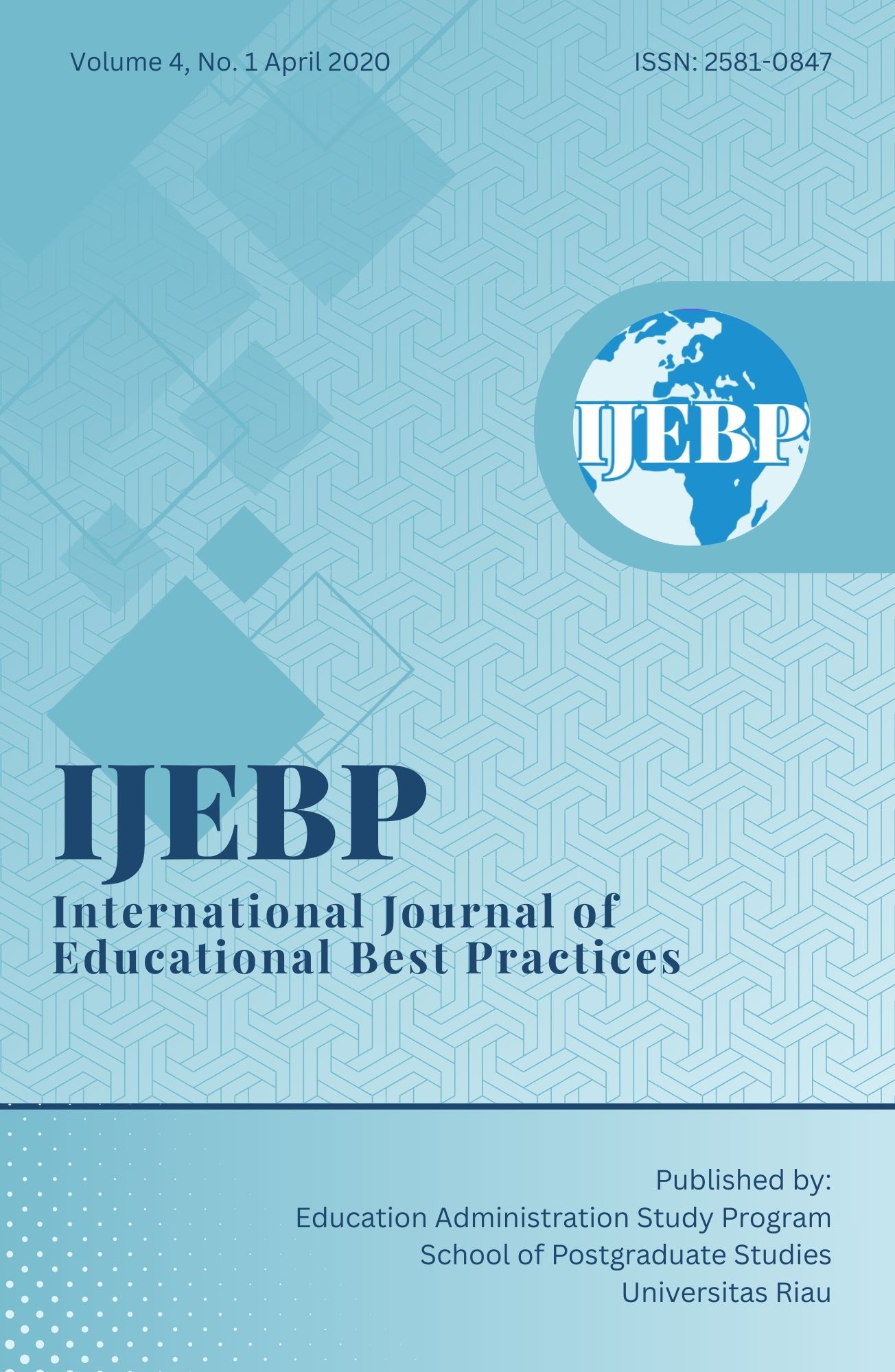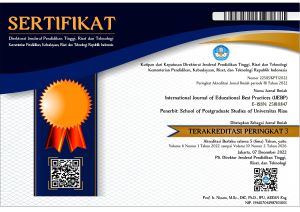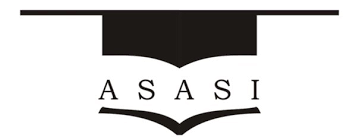HEAD TEACHERS ATTITUDE TOWARDS INCLUSIVE EDUCATION: THE KEY PREDICTOR OF EFFECTIVE IMPLEMENTATION OF INCLUSIVE EDUCATION IN PUBLIC PRIMARY SCHOOLS OF MURANG’A COUNTY, KENYA
DOI:
https://doi.org/10.31258/ijebp.4.1.1-16Keywords:
inclusive education, predictors, head teachers, attitudesAbstract
Inclusive education has been accepted as the medium through which learners with disabilities and other special need will access and participate in quality education. Preparedness of implementers of inclusive education in terms of attitudes and knowledge is critical for the effective implementation of inclusive education. Based on the theory of innovation diffusion, this cross sectional study sought to determine if head teachers and teachers‟ knowledge of and attitudes towards inclusive education were predictive of effective implementation of inclusive education. Data were collected from 66 head teachers and 462 teachers from Murang‟a County, Kenya, using questionnaires and an observation guide. Multiple regressions was used to analyse the data and results indicated that though head teachers and teachers‟ attitudes towards inclusive education and knowledge of inclusive education predicted effective implementation of inclusive education, head teachers‟ attitudes had the greatest predictive strength. The implication of the findings is that concerted efforts should be put in place to ensure the acquisition of positive attitudes among implementers of inclusive education specifically head teachers and teachers.
References
Ajuwon, P. M., Lechtenberger, D., Griffin-Shirley, N., Sokolosky, S., Zhou, L., & Mullins, F. E. (2012). General education pre-service teacher’s perceptions of including students with disabilities in their classrooms.
Ainscow, M. & Sandill, A. (2010). Developing inclusive education systems: The role of organisational cultures and leadership. International Journal of Inclusive Education 14 (1) 1-16| doi:10.1080/13603110802504903.
Ainscow, M., Dyson, A., & Weiner, S. (2012). From exclusion to inclusion. A review of international literature of ways of responding to students with special educational needs in schools. (www.uhu.es/publicaciones/ojs/index.php)
Angelides, P. (2011). Forms of leadership that promote inclusive education in Cypriot schools, Educational Management Administration and Leadership, 40 (1), 21-36. doi: 10.1177/1741143211420614.
Bii, C. & Taylor, L. (2013). Inclusive education in Kenya Assessment report Kenya/Somali Programme. Nairobi, Handicap International. Retrieved from: (http://hiproweb.org/fileadmin/cdroms/inclusive).
Booth, T. & Ainscow, M. (2011). Index for inclusion: developing learning and participation in schools. Bristol. Centre for Studies on Inclusive Education, (CSIE).
Buford, S., & Casey, L. B. (2012). Attitudes of teachers regarding their preparedness to teach students with special needs. Delta Journal of Education, 2 (2) 16-30. Retrieved from: (http//www.deltastate.edu.).
Buhere, P., Ndiku, J., & Kindiki, J. (2014). Inclusive Education and School Culture: Integration Issues for Mainstream Primary Schools in Kenya. International Journal of Education and Research, 2(5), 423-432.
Buhere, P., & Ochieng, P. (2013). Usage of selected resources for inclusive education in mainstream primary schools: Issues and challenges from a Kenyan perspective. Journal of Problems of Management in the 21st century, (8) 16-24. Retrieved from: (http//www.scientiasocialis.it/pmc/files/pdf/16-24).
Charema, J. (2010). Inclusive education in developing countries in the sub Saharan Africa: from theory to practice. International Journal of Special Education. 25(1), 87- 93. Retrieved from: http://www.files.eric.ed.gov/fulltext/EJ89056).
Chhabra, S., Srivastava, R., & Srivastava, I. (2010). Inclusive education in Botswana: The perceptions of school teachers. Journal of Disability Policy Studies, 20(4), 219-228. doi: 10.1177/1044209309344690.
De Boer, A., Pijl, S. J., Minnaert, A., & Post, W. (2014). Evaluating the effectiveness of an intervention program to influence attitudes of students towards peers with disabilities. Journal of autism and developmental disorders, 44(3), 572-583.
Fayez,M., Dababneh, K., & Jumiaan, I. (2011). Preparing teachers for inclusion: Jordanian preservice early childhood teachers‟ perspectives. Journal of Early Childhood Teacher Education, 32 (4), 322-337. Retrieved from: (http://www.tandf.co.uk/journals).
Forlin, C., & Chambers, D. (2017). Catering for diversity: Including learners with different abilities and needs in regular classrooms. In Life in Schools and Classrooms (pp. 555-571). Singapore. Springer.
Gous, J. G., Eloff, I., & Moen, M. C. (2013). How inclusive education is understood by principals of independent schools. International Journal of Inclusive Education, (ahead-of print), 1-18.
Hadjikakou, K. & Mnasonos, M. (2012). Investigating the attitudes of head teachers of Cypriot primary schools towards inclusion. Journal of Research in Special Educational Needs, 12, (2), 66–81.
Hoppey, D. & McLesky, J. (2010). A case study of principal leadership in an effective inclusive school. The Journal of Special Education, 46 (4), 245- 259. doi: 10.1177/0022466910390507.
Itaoka, K. (2012) Regression and interpretation low R-squared. In Proceedings of the presentation at Social Research Network 3rd Meeting, Noosa. Mizuho Information and Research Institute, Inc.
Khan, T., A. (2011). Investigation of secondary school teachers’ attitude towards and Knowledge about inclusive education in Bangladesh (Master‟s thesis, University of Canterbury, New Zealand. Retrieved from:
(http://www.ir.canterbury.ac.nz.bitstream/10092/6290/1/thesis_fulltext.pdf).
Kenya Institute of Education (KIE) (2011). Report on a situational analysis of the status of inclusive education in primary and secondary schools in Kenya. (KIE Research Report Series No. 98.) Nairobi, KIE.
Majawa, C. (2014). Patristic Education. Nairobi. Kijabe Printing Press.
Mensah, A. K. (2016). Cross-cultural analysis of teacher perspectives and preparedness for inclusive education in Ghana and Germany: Implications for teacher education (Doctoral dissertation, Universität zu Köln).
Mugenda, A.G. (2011). Social science research: theory and principles. Nairobi. Applied Research & Training Services.
Mwangi, E. M. & Orodho, J. A. (2014). Challenges facing implementation of inclusive education in public primary schools in Nyeri town, Nyeri County, Kenya. Journal of Education and Practice, 5 (16), 118-125. Retrieved from: (http://www.ir-library.ku.ac.ke).
Mukhopadhyay, S. (2013). Voices of experience: Botswana primary schools teachers on inclusive education. European Journal of Educational Studies, 5(1).
Mukhopadhyay, S., Molosiwa, S.M. & Moswela, E. (2009). Teacher trainees level of preparedness for inclusive education in Botswana schools: Need for change. International Journal of Scientific Research in Education. 2 (2), 51-58. Retrieved from: (http://www.ijsre.com).
Murang‟a County Education Department. (2019). Murang‟a County Education Management Information System (EMIS). Murang‟a. County Education Department.
Mwakachola, S. M. (2010). Attitudes of preschool teachers towards inclusive education for children with hearing impairments in Makadara division, Nairobi, Kenya (M.Ed Thesis), Kenyatta University, Nairobi, Kenya.
Mwangi, E. M. & Orodho, J. A. (2014). Challenges facing implementation of inclusive education in public primary schools in Nyeri town, Nyeri County, Kenya. Journal of Education and Practice, 5 (16), 118-125. Retrieved from: (http://www.ir-library.ku.ac.ke).
Mwarari, C. N. (2019). Teachers‟ attitudes towards inclusive education in public primary schools of rural Kenya. International Journal of Social Sciences 9 (2), 77-85.
Njoka, E., Riechi, A., Obero, C., Kemunto, W., & Muraya, D. (2011). Towards Inclusive and Equitable Basic Education System: Kenya‟s experience. ADEA Working Document.
Nyende, F. (2012). Children with disabilities in universal primary education in Uganda: A rights based analysis to inclusive education. (Unpublished Masters thesis). International Institute of Social Studies, Hague, Netherlands.
Odongo, G. (2012). Examining the attitudes, perceptions and concerns of Kenya teachers toward the inclusion of children with disabilities in general classrooms (Ph.D Thesis). Texas Tech University, USA.
Ogolla, P. J. (2011). Factors influencing the implementation of inclusive education in public primary schools in Mombasa County, Kenya (M. Ed thesis), University of Nairobi, Kenya.
Oswald, M. & Engelbretcht, P. (2013). Leadership in disadvantaged Primary Schools: Two Narratives of Contrasting Schools. Journal of Educational Management Administration Leadership, 41 (5), 620-639. doi: 10.1177/1741143213488377.
Organisation of African Unity (OAU). (1990). African charter on the rights and welfare of the child. OAU Doc.CAB/LEG/24.9/49 (1990). Addis Ababa; OAU.
Orphanos, S., & Orr, M. T. (2013). Learning leadership matters: The influence of innovative school leadership preparation on teachers‟ experiences and outcomes. Journal of Educational Management Adminstration Leadership doi: 10.1177/1741143213502187.
Peebles, J. & Mendaglio, S. (2014). Preparing teachers for inclusive classroom: Introducing the individual direct experience approach. Learning landscape 7 (2) 245-257. Retrieved from: (http://www.learninglandscapes.ca/...II-no14-peebles-mendaglio).
Peter, M. N., & Nderitu, M. N. (2014). Perceptions of Teachers and Head Teachers on the Effectiveness of Inclusive Education in Public Primary Schools in Yatta Division Machakos County. Journal of Educational and Social Research, 4(1), 91. doi:10.5901/jesr.2014.v4n1p91
Republic of Kenya ( 2010 ). Constitution of Kenya. Nairobi. Government printer.
Riehl, C. J. (2000). The principal's role in creating inclusive schools for diverse students: a review of normative, empirical, and critical literature on the practice of educational administration. Review of Educational Research, 70 (1), 55-81. doi: 0.3102/00346543070001055.
Rights, J. D., & Sterba, S. K. (2019). Quantifying explained variance in multilevel models: An integrative framework for defining R-squared measures. Psychological methods, 24(3), 309.
Sharma, U. Simi, J., & Forlin, C. (2015). Preparedness of pre-service teachers for inclusive education in the Solomon islands. Australian Journal of Teacher Education, 40 (5). http://dx.doi.org/10.14221/ajte.2015v40n5.6
UNESCO (1990). World conference on Education For All. Jomtien: UNESCO.
UNESCO (1994). The Salamanca Statement and Framework for Action on Special Needs Education: World Conference on Special Needs Education: Access and Quality. Salamanca. UNESCO.
UNESCO (2015). Incheon Declaration: World Education Forum 2015: Towards inclusive and equitable quality education and lifelong learning for all. Retrieved from: (http://en.unesco.org/world-education-forum-2015/incheon-declaration).
United Nations (UN) (1948). Universal declaration of human rights. Paris: UN.
United Nations (UN). (2015). Sustainable Development Goals. Paris: UN.
Urton, K., Wilbert, J., & Hennemann, T. (2014). Attitudes towards inclusion and selfefficacy of principals and teachers. Learning Disabilities- A Contemporary Journal, 12(2).
Wilczenski, F. L. (1992). Development of a scale to measure attitude toward inclusive education. Educational and Psychological Measurement, 55(2), 291-299.
Zagona, A. L., Kurth, J. A., & MacFarland, S. Z. (2017). Teachers‟ views of their preparation for inclusive education and collaboration. Teacher Education and Special Education, 40(3), 163-178.





